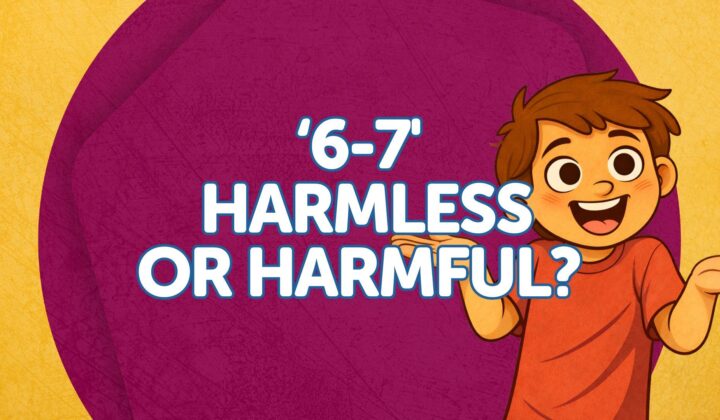Learn more about the journey that led to us equipping kids to carefully evaluate every idea they encounter.
Meet members of our team who have contributed to curriculum development.
Hear from real users of the Foundation Curriculum.
Learn what we believe about God, Jesus, Scripture, and more.
When Should Kids Start Reading the Bible Independently?
At what age should kids begin learning to read the Bible independently? In this episode, Elizabeth Urbanowicz looks at how and when to start kids on their way to read the Bible on their own with practical tips you can use today.
Transcript
Note: The following is an auto-transcript of the podcast recording.
Hello friends, and welcome to another episode of the Foundation Worldview Podcast, where we seek to answer your questions so that you can equip the kids God has placed in your care to carefully evaluate every idea they encounter and understand the truth of the biblical worldview. I'm your host, Elizabeth Urbanowicz, and I'm thrilled that you've joined me for another episode today. Today's question says, "at what age do you suggest kids begin learning an independent quiet time of reading the Bible and journaling?" It's a great question, and I love it because I love that this person is thinking forward and is thinking, okay, how do we begin to equip our kids to independently spend time in God's word and praying? Because so often in the Christian community, we think of independence in almost every way except for in Bible reading. We don't want to be feeding our kids or at least feeding our kids daily or cooking them breakfast when they're in their late twenties.
We don't want them living in our basement when they're in their thirties. We don't want to have to be the ones who are raising their children when our kids are in their forties. We want to equip them for independence. Yet for some reason, we tend not to think about this when we're going through Bible instruction. We just tend to put all of the impetus on us and our lesson planning and what we're doing rather than on how are we equipping these kids with the skills that they need to soundly read, interpret, and apply scripture. So the short answer to this question is age eight or nine, just depending on the child at their maturity and their reading level. But really by the age of nine children should be at a reading level where they're able to read longer passages of scripture independently and where they have the attention span to be able to sit down for between five and 10 minutes to read scripture, think through it, do some basic journaling, and then praying through it.
So the first thing that we should do is we should start out reading scripture together. There was this phrase when I was getting my master's in literacy education, and I can't remember who it was by, but it was by some educational theorist, and they said, what you want to do is you want to do "I do. We do. You do." So first we start off modeling. I do things for our children, then we practice with them. We do. Then we gradually release the responsibility to "you do" so, "I do." "We do." "You do." So the first thing is the "I do" what we're going to do, what we're going to start modeling, and we just need to make sure that we are having a daily time in God's word, that we're modeling this for our children and that not that they have to see it every time, but that they know that we spend daily time reading scripture.
This was something I knew growing up, that every morning my mom would get up before us and she would spend time reading the Bible. She modeled this for us, that she would spend time in God's word. Then what we need to do is we need to do this together, and so we need to read scripture together. So we should practice reading through chapters of the Bible with our kids, even from the time that they're two. We can train them to listen even if they don't understand everything, even from the age of two, they can be listening to a chapter of the Bible in the evening so that we just make this just a regular part of our nighttime routine that we're reading scripture to them. Then as they get older, that's when we can get into the "We do" section, what we're doing together, where we can read with them side by side.
We can take turns who is reading out loud. We can ask them questions. We can have them ask us questions, and then by the time they're eight or nine years old, they should be able to spend five or 10 minutes either in the morning or in the evening, or if you're a homeschooling family, it can be in the middle of the day reading God's word. Now, if we want them to do this well, we need to teach them some basic skills in sound biblical interpretation. So those of you who have gone through Foundation Studying the Bible Curriculum, your children already have a ton of the skills that they need to soundly read, interpret, and apply scripture. For those of you who haven't taken the kids in your care through that curriculum, what we do is we go through three basic steps. The first step is teaching the whole story of the Bible, having the kids practice, putting together a Bible timeline so that they understand the major time periods in Bible history, so that anytime they hear a sermon, anytime they're reading a passage of scripture, anytime they hear a claim from scripture, they can ask themselves the question, where does this fall in the Bible timeline?
We want them to know that Bible timeline forward and backwards so that the Bible just doesn't seem like a random collection of stories or rules or wise saying, so that first thing is under having them understand the whole story. Then we want to teach them some basic Bible study skills. Things like reading verses in context that we don't just read one verse, we read the verses before it and after it to make sure that we're understanding it correctly, and then looking for truths that are revealed about God, about humans, about God's big plan so that our kids understand that it's not, what does this Bible verse mean to you? It's okay, what has God revealed through this passage of scripture? What has he revealed about himself? What has he revealed about humans? What has he revealed about his big plan? And then the final thing that we want to do is we then want to equip them with the skills that they need to read each genre.
So we want them to look at, okay, what is this genre? Is it poetry? Is it prophecy? Is it history? Is it biography? And how do I read this genre soundly? So once our kids have those skills, then they're going to be equipped to pick up the Bible and start reading, interpreting, and applying scripture in their own lives. So remember I do, we model for them, we do it together, and then you do independently. And by eight or nine years of age, that's when we can begin training these kids in our care to soundly, read, interpret, and apply scripture on their own. Now, the second part of this question asked about journaling. Journaling can be anything from writing down things that we learn when we're reading the Bible. It can be writing down truths that we're learning. It can be writing down application, how we apply God's word to our lives, or it can be prayer, journaling.
And so I would encourage just that we equip the kids that God has placed in our care to just write down some of the truths that they're learning as they're reading scripture, and then to write down any applications. How does that verse apply to their lives? Then we do want to also teach our children how to pray. And again, we can use that "I do, we do. You do" model in that we're modeling prayer for our children that we're praying out loud before them, then that we're praying together. We're letting them pray. This is something that I love about when I go to my missional community group on Wednesday evenings that my small group leader and his wife, they have five boys and their two youngest boys right now are five and four. And sometimes before we have our dinner together on Wednesday evenings, they'll ask one of the younger boys if they want to pray, and now are their prayers as in depth as when one of the adults pray?
Absolutely not. But their kids have seen prayer modeled for them, and then they've prayed with their parents at bedtime, and then now they're equipped to talk to God on their own. We can also teach our kids just different methods of praying. I know some people like to use the ACTS model where first we adore God, we praise him for who he is, and then we confess our sin before him, and then we thank him for what he's provided for us, and then we bring our supplications before him. So a lot of times, I know people like to use that ACTS model. We can write down our prayer requests and a list. We can write down who are the people in our church? Who are the people in our family that need prayer? What people in our nation need prayer in our world? And then go through that list.
We can teach our children to prayer journal. Now, some of them aren't going to be writers and are not going to like this, but if they are writers and they do enjoy writing, prayer journaling can be a really helpful thing. We can teach them to pray through the Psalms. There's a great little book called Praying the Scriptures that just goes through, okay, how do you look at a psalm and pray through that psalm? So teaching our kids how to pray is also something that is incredibly valuable. So again, I love this question. It's my prayer that all of us will be thinking, okay, how can we begin to equip these kids that God has placed in our care to independently read, interpret, and apply scripture, and then thinking about the same thing for prayer? How do we equip our kids to talk to God to develop this relationship through prayer with God? Well, that's a wrap for this episode. But as always, my prayer as we leave this time together is that God would richly bless you as you continue to faithfully disciple the children he's placed in your care. I'll see you next time.
Related Posts and insights

Affirm the Questions of the Children You Are Teaching
Affirm children’s questions to foster curiosity and lifelong learning. Discover a simple, biblical strategy for building a love of learning.

How Should Christians Respond to the "6 7" Trend? Helping Kids Think Biblically About Cultural Phrases
How should Christian parents handle the "six seven" trend? Learn to avoid the genetic fallacy and guide your kids to think biblically about cultural phrases.

How Do We Explain the Doctrine of Election to Kids?
How do you explain the doctrine of election to kids without causing fear? Discover how Scripture's promises bring peace and assurance to children's hearts.





